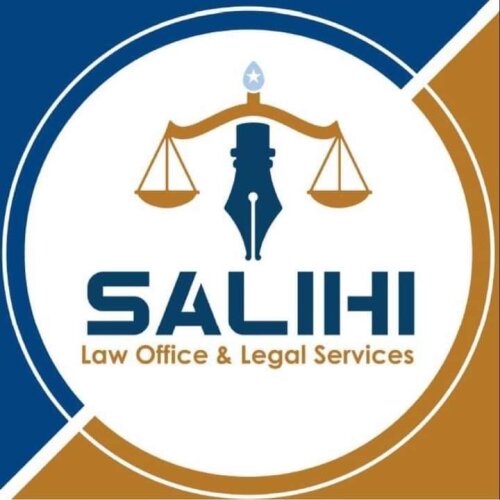About Business Law in Mogadishu, Somalia
Mogadishu, the capital city of Somalia, is a bustling hub of trade and commerce in the Horn of Africa. As the country's political and economic landscape evolves, business opportunities have expanded, with foreign and local investments pouring into various sectors such as telecommunications, real estate, and service industries. However, doing business in Mogadishu requires a keen understanding of both local and national laws, which can be complex due to Somalia's developing legal framework. Business law in Mogadishu encompasses everything from forming companies and securing licenses to complying with tax obligations and employment regulations.
Why You May Need a Lawyer
Seeking legal assistance in business matters in Mogadishu is crucial for several reasons. First, understanding the legal requirements for operating a business can be daunting without expert guidance. Legal assistance is often needed for drafting contracts, navigating employment laws, and settling disputes. Second, the legal environment in Somalia is still stabilizing, and a lawyer can help ensure compliance with both existing and emerging regulations. Lastly, a lawyer can provide advice and representation to safeguard your interests during negotiations and when dealing with governmental bodies.
Local Laws Overview
Business laws in Mogadishu are primarily governed by the Somali Federal Government and local regulations. Key aspects include:
1. Company Registration: Businesses must be registered with the Ministry of Commerce and Industry, complying with the requirements for legally operating in Somalia.
2. Taxation: Businesses are subject to various taxes, including income tax and value-added taxes (VAT), which are essential for compliance.
3. Employment Law: Employers must adhere to labor laws concerning employment contracts, wages, and employee rights.
4. Contract Law: Contractual agreements are fundamental to business operations, requiring careful documentation and legal scrutiny to be enforceable.
5. Dispute Resolution: The legal framework provides avenues for resolving disputes through courts and alternative dispute resolution mechanisms.
Frequently Asked Questions
What do I need to start a business in Mogadishu?
To start a business, you need to register with the Ministry of Commerce and Industry, obtain necessary licenses, and comply with tax and employment laws.
How are business disputes resolved in Mogadishu?
Disputes can be resolved through the judicial system or alternative mechanisms like arbitration and mediation, which are encouraged for efficiency.
What are the labor law requirements for employers?
Employers must draft employment contracts, pay minimum wages, and provide safe working conditions as per the labor laws.
Are there any incentives for foreign investors?
The government offers incentives such as tax breaks and simplified processes for foreign investors in priority sectors.
Do I need a local partner to start a business?
While not legally required, partnering with local stakeholders can facilitate ease of operations and compliance.
How can I protect my intellectual property in Mogadishu?
Intellectual property protection is provided under Somali law, but enforcement can be challenging due to the nascent legal framework.
What are the typical taxes businesses must pay?
Typical taxes include income tax, VAT, and sometimes sector-specific levies, all administered by the Ministry of Finance.
How can a lawyer assist with contract drafting?
A lawyer ensures contracts are legally binding, protecting your interests and reducing the likelihood of future disputes.
What are the compliance requirements for corporations?
Corporations must file annual reports, maintain accurate records, and comply with financial disclosure requirements.
Is it safe to do business in Mogadishu?
While there are security challenges, businesses can operate safely by taking appropriate measures and following legal procedures.
Additional Resources
For business-related legal advice, consider reaching out to the following resources:
- Ministry of Commerce and Industry: Responsible for business registrations and regulatory guidance.
- Somali Chamber of Commerce: Provides support and resources for local businesses.
- Local law firms: Offer expertise in corporate law, contract drafting, and dispute resolution.
Next Steps
If you require legal assistance in business matters, the following steps can guide you:
1. Consult a Legal Expert: Seek consultations with local law firms specializing in business law to understand your legal obligations.
2. Engage a Lawyer: If necessary, hire a lawyer to assist with contract drafting, compliance issues, or dispute resolution.
3. Stay Informed: Keep abreast of legal and regulatory changes that might impact your business operations in Mogadishu.
Lawzana helps you find the best lawyers and law firms in Mogadishu through a curated and pre-screened list of qualified legal professionals. Our platform offers rankings and detailed profiles of attorneys and law firms, allowing you to compare based on practice areas, including Business, experience, and client feedback.
Each profile includes a description of the firm's areas of practice, client reviews, team members and partners, year of establishment, spoken languages, office locations, contact information, social media presence, and any published articles or resources. Most firms on our platform speak English and are experienced in both local and international legal matters.
Get a quote from top-rated law firms in Mogadishu, Somalia — quickly, securely, and without unnecessary hassle.
Disclaimer:
The information provided on this page is for general informational purposes only and does not constitute legal advice. While we strive to ensure the accuracy and relevance of the content, legal information may change over time, and interpretations of the law can vary. You should always consult with a qualified legal professional for advice specific to your situation.
We disclaim all liability for actions taken or not taken based on the content of this page. If you believe any information is incorrect or outdated, please contact us, and we will review and update it where appropriate.











